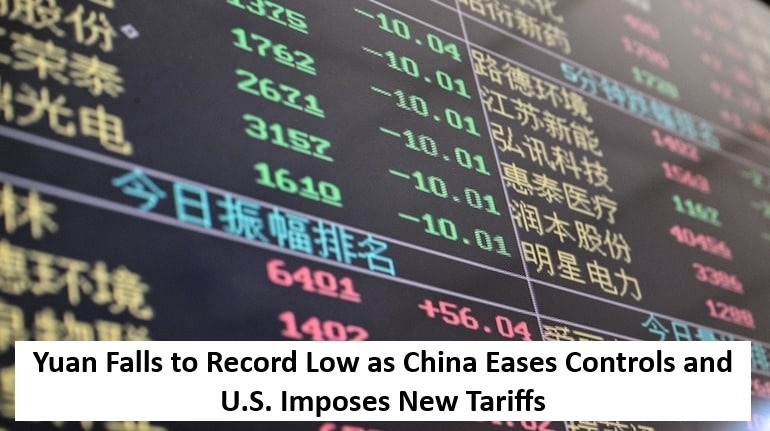
The offshore yuan sharply declined to its weakest level since the market began in 2010. This occurred after China reduced its grip on the currency, around the same time the United States moved forward with a significant 104% tariff on a wide range of Chinese imports.
By Tuesday evening in New York, the yuan had fallen by as much as 1.1%, reaching 7.4290 per dollar. Though it regained some value on Wednesday, it still marked a historic low. On the same day, the People's Bank of China (PBOC) set the daily reference rate at 7.2038, the softest level since September 2023. This broke through the symbolic 7.20 level for the first time since 2016, often seen as a signal of China's currency policy direction.
The onshore yuan, which is more tightly managed and operates within a 2% range around the daily fixing rate, also fell to its lowest since September 2023.
Currency Weakening May Help Exports, But Risks Remain
Allowing the yuan to drop may help boost Chinese exports at a time of growing trade tensions. However, this decision carries serious risks. A sharp decline in the currency could trigger capital outflows, harm market confidence, increase economic uncertainty, and worsen relations with the United States.
On the other hand, keeping the yuan strong could limit export growth and add pressure to an already slow economy. Waiting too long to let the currency adjust may also increase market volatility later.
Trade Dispute Escalates with New U.S. Tariffs
Tensions between the two countries worsened on Monday. Former President Trump threatened to raise tariffs by another 50% unless China withdrew its planned responses. The White House later confirmed a total 104% tariff rate would go into effect on April 9.
China responded strongly. Its Ministry of Commerce said it would “fight to the end” and introduced countermeasures. These include matching tariffs and new export limits on rare earth materials that are vital for U.S. industries.
These moves have reduced the chances of a near-term trade agreement.
Market Outlook: Analysts Expect More Yuan Weakening
Investors have been watching for a shift in China’s currency approach, especially since the start of Trump’s second term. While Beijing has said it wants exchange rate stability, recent changes suggest otherwise.
Analysts now expect more weakening of the yuan, although opinions are mixed. Some predict a gradual decline, while others foresee a sharper drop if market conditions worsen or further tariffs are announced.
Read More: Bangladesh Unrest Intensifies as Angry Mobs Target Media Offices Following Death of Student Leader

 Share
Share



